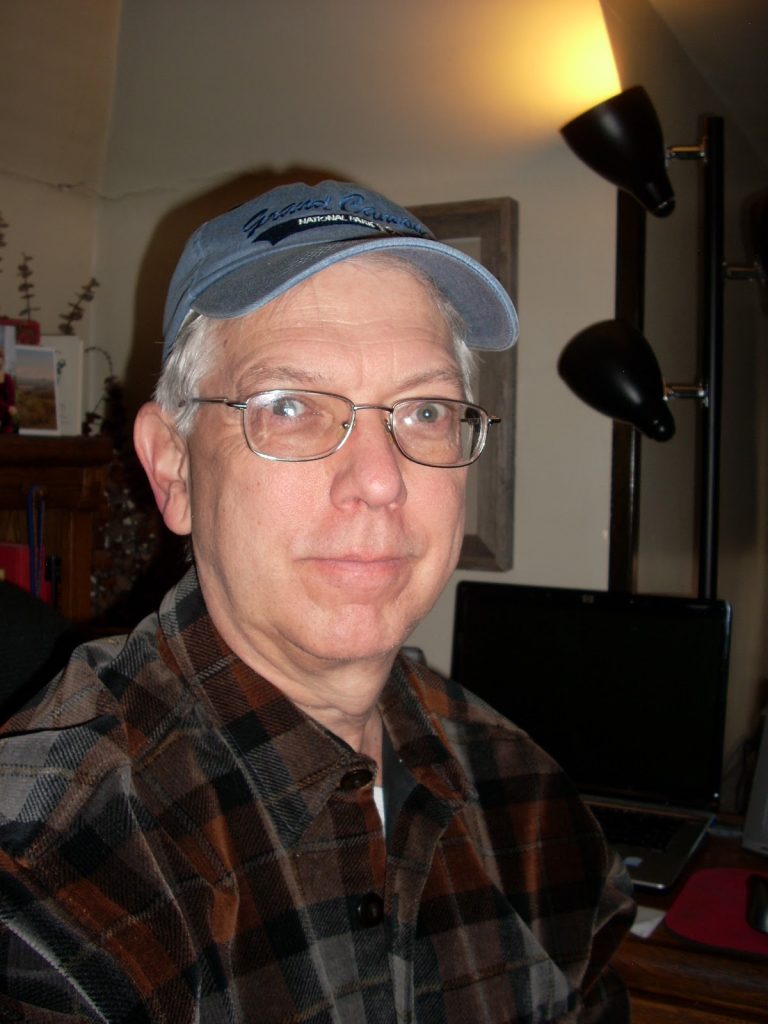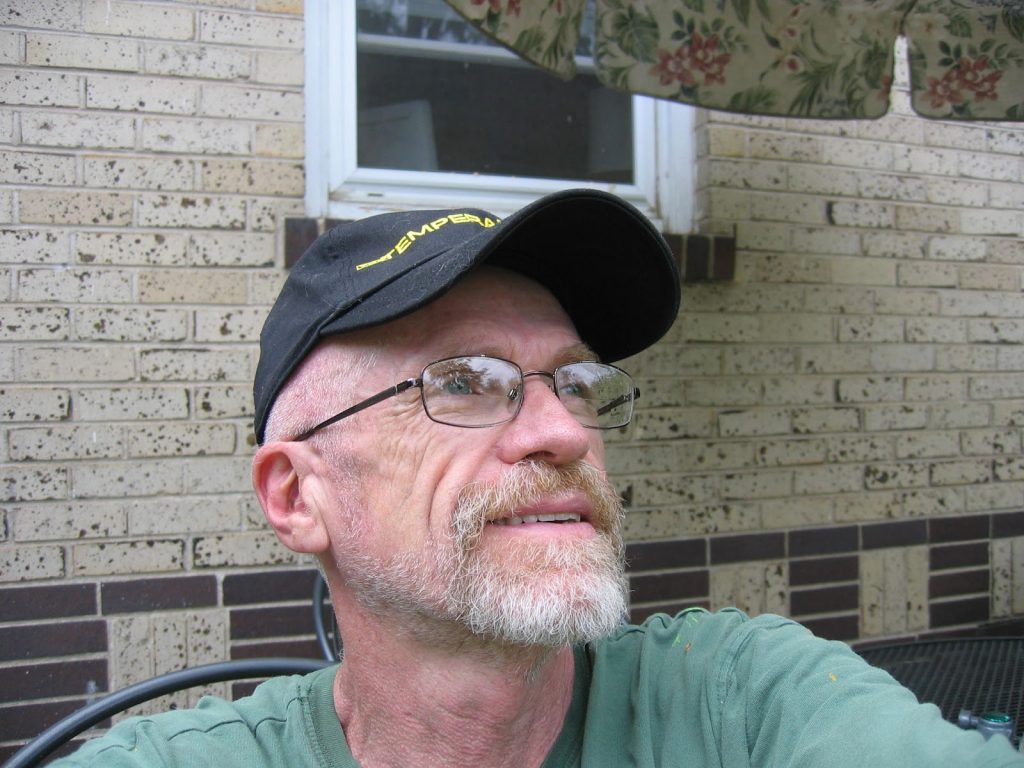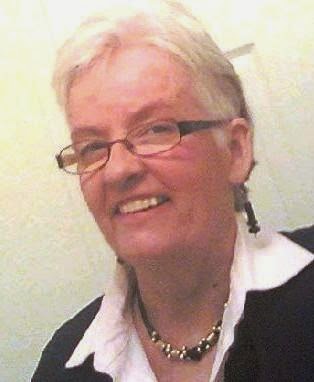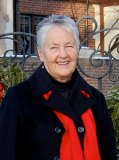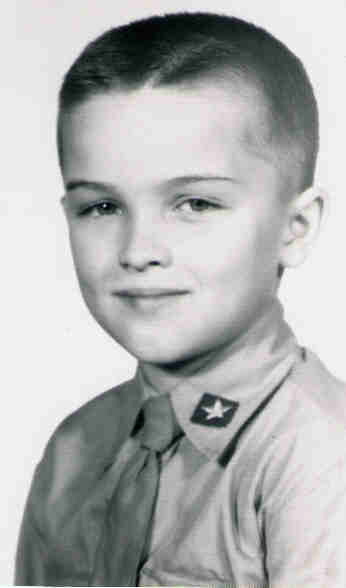Ted grew up on a large farm in southwestern Kansas, near Liberal. Ted seemed to have inherited his musical ear and talent from his mother, a fine pianist who accompanied her son’s solos throughout his childhood and teens. Ted’s clear, resonant, and lovely voice and his ability to interpret songs came from somewhere. His mom? His dad? I didn’t know them well enough to judge. Ted did seem to have inherited from his dad his tall frame, his good looks, his organizational ability, and his alcoholism. Ted sang in church and school choirs and pranced down Main Street and around the football field as drum major of the high school band. He was also a straight-A student.
When Ted was fifteen he attended the Fred Waring Choral Summer Workshop where he learned a lot about music and had sex with a man. When he got home, he asked his mom if he could see a psychiatrist. “You need a psychiatrist like I need a hole in my head,” she responded. That ended the conversation but not Ted’s worry over his life and its direction.
Ted attended college at Wichita State University as a music education major with vocal and choral options. One of his college teachers told me Ted was brilliant, not just smart, perhaps the most brilliant student she had ever taught. I figured she might know something about that since she had taught grade school, high school, college, and graduate courses. While an undergraduate student, Ted ably led the choir in his Wichita church. Upon graduation he began his music career as a vocal and choral instructor in a small church-related college in north-central Kansas. That’s where I met him during my last semester.
Ted and I seemed very much alike yet at the same time quite different. I had been married about a year and a half; the summer before we met, Ted had terminated his engagement to be married. We did share our love of vocal and choral music. We both had been directing choirs. Somehow I also knew that like me he would be open to sex with another man. He too may have known that about me, but we didn’t move toward that kind of relationship. Rather we became good friends.
Ted’s musical brilliance was supported by his tremendous organizing skills and natural gift as a teacher. He made musicians of his students. A couple of years into his work at the college, he tried again to court and to marry but in so doing pushed himself into an emotional and mental breakdown. His high-school self analysis had been too accurate.
By then, my wife and I lived in Wichita. Ted entered the graduate music program in voice at WSU. On weekends he’d stay with us and our new baby boy. One weekend he came out to me and seemed a little angry with me when I told him I’d realized he was gay the very first time I met him. When he lived with us a couple of months the following summer, Ted’s homosexuality revealed itself to be as intense as his brilliance, musicality, musicianship, and ability to organize. He and I stayed with our chosen friendship, yet he told me many, many things about his life, including some of his sexual experiences. He seemed a little disappointed as well as relived when his psychiatrist and counselors at the mental hospital where over a number of years he received care told him they were not treating his homosexuality; they did not consider it an illness. We continued to become even greater friends. Ted was a friend with my wife as well and an uncle to our son.
Ted left college teaching and followed his voice teacher to Texas where he studied music at Trinity University. I visited him in San Antonio, saw the university, met teachers, observed his great choral programming at a church where he was music director, sang with him, and more. On that trip Ted became my gay educator interpreting such phenomena as gay bars, drag queens, gay language (verbal and non-), gay people, and the emerging gay literature; and he told me many more stories from his own experience.
Eventually Ted moved to San Francisco where he plunged into a gay scene not imaginable in Wichita, San Antonio, Houston, or Dallas. There he sang in the San Francisco Gay Men’s Chorus, organized and led the SFGM Chorale. He taught voice at a community music school, led other ensembles, and sang professionally in a Catholic Church choir. On one visit I went to mass with him. The organist and all the singers seemed to be gay. But even more than all these things, and in a very personal way equally important, Ted became an A-List masochist. He contracted HIV, doctored at San Francisco General Hospital, and became an AIDS activist. Ted showed me the photo of himself at a party wearing his mother’s mink stole and explained he was exploring his feminine side. He told me stories of unrequited love. When we walked around together he made comments about beautiful men we encountered. I must add this: Ted lived at 944 Castro. Do I really need to say more? I’m sure Ted was the gayest person I ever met.
Ted died from AIDS-related conditions. I attended his balloon-crowded memorial service at First Congregational Church, heard spoken tributes by a number of his gay friends, listen to his beloved chorale sing, and enjoyed a gay party after the service. When I came to Denver to live as a gay man, I dedicated myself to giving massages to people living with HIV/AIDS in his memory. Ted was and continues to be my gay icon.
Denver, 2014
About the Author
Phillip Hoyle lives in Denver and spends his time writing, painting, and socializing. In general he keeps busy with groups of writers and artists. Following thirty-two years in church work and fifteen in a therapeutic massage practice, he now focuses on creating beauty. He volunteers at The Center leading the SAGE program “Telling Your Story.”
He also blogs at artandmorebyphilhoyle.blogspot
